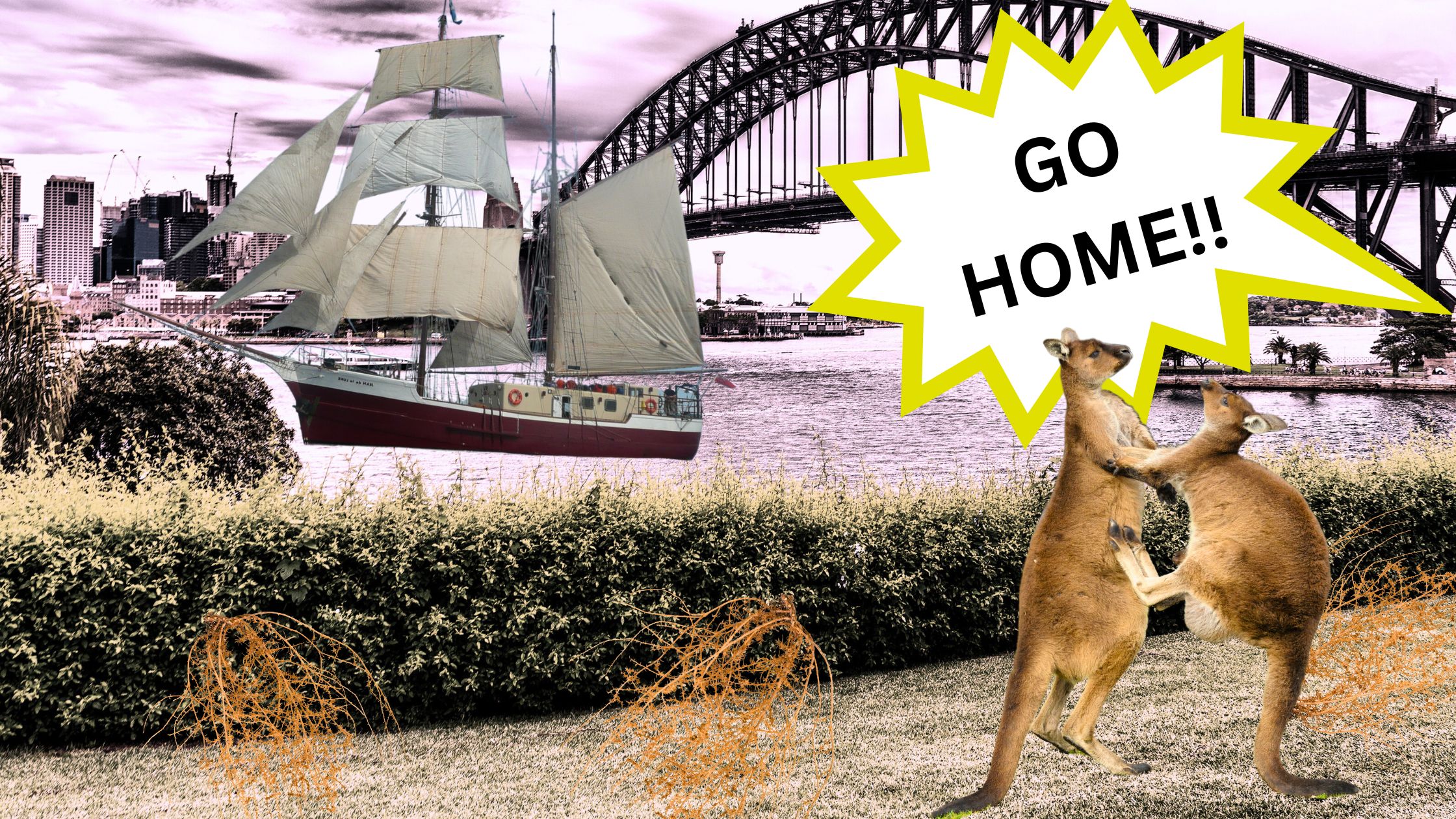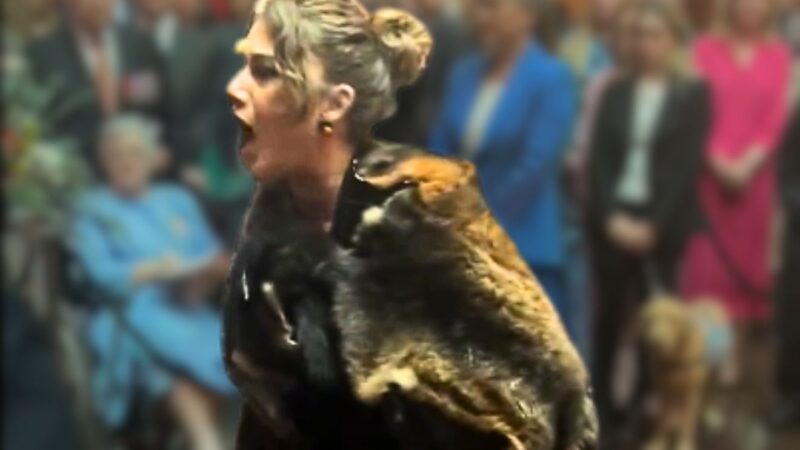Chaos Ensues as Aboriginal People Gain Full Control of Australia and Settlers Are Shown the Door

ALTERNATE REALITY – In a plot twist that caught everyone off guard, Australia’s Commonwealth occupation has been overturned, and Aboriginal people have taken charge. As settlers bid their farewells and headed for the exit, chaos erupted all across the country. What was once a land of hope and prosperity quickly turned into a dystopian comedy. Welcome to the “Great Aboriginal Experiment”.
With full control in their hands, the new Aboriginal leaders wasted no time putting their grand vision into action. Their first order of business? Giving settlers the boot. While some argued that this decision was justified, the practical implications turned out to be quite calamitous.
As millions of Aussies reluctantly packed their bags, Australian society went into a tailspin. The once thriving economy crumbled faster than a pavlova in the summer sun. Skilled professionals, entrepreneurs, and investors, who had been part of the nation’s growth for generations, were shown the door without so much as a “G’day, mate.” In their place, inexperienced leaders attempted to step up, resulting in a series of absurd policies and economic mishaps.
As settlers departed, they took the infrastructure they had built along with them. Roads, hospitals, schools, and other vital institutions fell into disrepair faster than a poorly built sandcastle at Bondi Beach. The dream of a prosperous Aboriginal nation swiftly turned into a desperate struggle for survival, leaving folks wondering if they should’ve stuck with the invaders.
With settlers gone, tensions flared among different Aboriginal communities competing for control. Tribal conflicts, which had been dormant for ages, resurfaced with a vengeance. What was supposed to be a unified Aboriginal Australia quickly became a Mad Max-style landscape of warring ‘First Nations’, each trying to outdo the other in a game of “knifey-spooney”.
Meanwhile, environmental protection efforts, once hailed as a priority, were abandoned faster than you can say “net zero.” With internal conflicts stealing the spotlight, the once pristine landscapes that dazzled the world were left neglected and exploited. The ecosystem suffered under the weight of neglect, as sustainability took a backseat to power struggles that would make a kangaroo boxing match seem civilised.
International relationships also took a beating in this unexpected power shift. The sudden upheaval left the global community scratching their heads and worrying about their next holiday destination. Diplomatic ties, once as solid as a frozen Tim Tam, were severed as the new leaders struggled to establish their legitimacy. Australia’s reputation as a stable and dependable nation went from a koala cuddle to a crocodile chase, leaving it vulnerable to foreign interests eyeing its resource-rich lands like a kid at a candy store.
Ironically, many expelled settlers found themselves in a state of bewilderment. After being in Australia for countless generations, they realised they didn’t have a “home land” to return to and ended up stuck in refugee camps and detention centres, hoping for a ticket to any other country. The utopian Aboriginal society they were promised was sinking faster than a dinghy with a hole, revealing a reality far from ideal. They had been sold a romanticised vision of a bright future, only to find themselves longing for a good ol’ Aussie snag on the barbie.
Desperate to salvage their reputation, the new leaders reached out to the expelled settlers, some of whom were thriving in their new homes, while others languished in the purgatory of refugee detention. They pleaded for their return, but after experiencing life outside the chaos of the “Great Aboriginal Experiment,” settlers were understandably reluctant to hop back into the turmoil they had left behind. When asked about his future, refugee Jim French quipped, “China is starting to welcome some of us. Can’t wait to enjoy the freedom China will provide compared to Melbourne!” Crikey!
As the dust settled, it became painfully clear that the annulment of Commonwealth occupation and the expulsion of settlers had turned into an epic fail. The dream of an Aboriginal-led Australia was shattered, leaving behind a nation torn apart by internal brawls, economic havoc, and international solitude. It was a lesson learned the hard way: governing a nation requires more than just simple notions of justice and reparation. We must tread carefully, considering the intricate web of history, culture, and governance that binds us—unless we want to end up with a comedy of errors Down Under!






